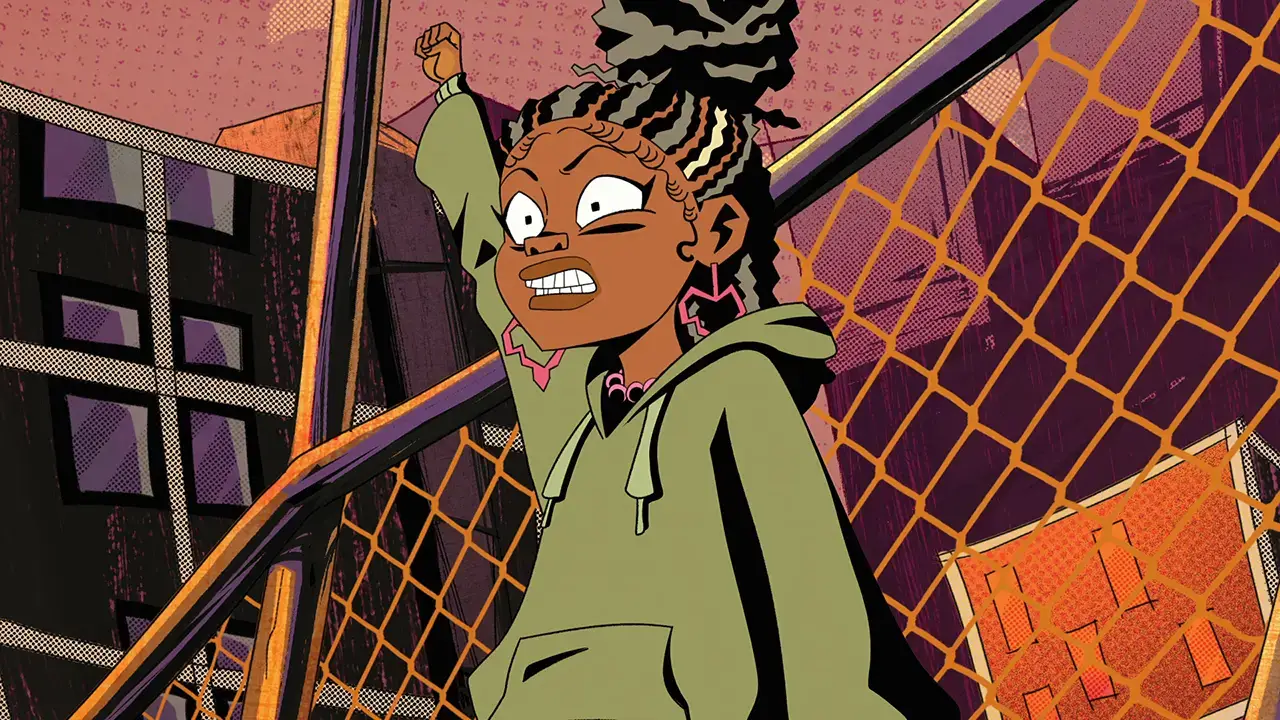Netflix made a remake of “Good Times”, but in this modern day reboot, it now tries to take on social issues as an animated series.
I previously offered you all my preemptive review on the “Good Times” animated reboot after the highly controversial trailer made the rounds. I didn’t like the trailer, and I specifically pointed out how its exaggerations and negative stereotypes were bad for the culture. However, after watching the first 3 episodes, I’ll admit the stereotypes aren’t as prominent in the show as the trailer intimated.
Still, the show is not my cup of tea, and more importantly, it failed to do its most important job: make me laugh!
Starting with the show’s opening theme song—honestly, I don’t know how they thought this was cool in 2024. The father in the series stares at an exaggeratedly big booty woman and picks her up. You’ve got Black people standing in a super long line for fried chicken. And there’s a black baby rolling dice for cash. Contrast this against the, yes, poignantly real but undoubtedly uplifting lyrics of the original Good Times theme, and I have to recommend you press the “skip intro” button on this new incarnation.
In episode 1, the very first sentence of the show is:
“Sounds like you woke up on the right side of the projects today”.
-First line from Good Times, Black Again
First and foremost, it’s not a funny sentence unto itself. And second, if there’s a message in there, I don’t get it.
Later in the episode, you see the father salivate over “spam and onions” for dinner, watch a baby deal drugs, and see a black man so ignorant of the world that he deletes 5 bitcoins. Despite all of this craziness, Netflix bleeps out the n-word.
Because yeah, you don’t want to offend anybody’s sensibilities, right?
On the flip side of the episode, there is a social commentary layer to what they’re putting on display. The stay-at-home mom is a super caring person whose old-school ways often conflict with the more modern times. While there is the ludicrosity of a baby as a drug dealer, his father is vehemently against it—so I’ll assume, the show isn’t trying to normalize it. And there even appears to be commentary on the silliness of rap beef, which is utterly timely given the whole JCole, Kendrick Lamar debacle going on right now.
In the other 2 episodes I watched, you did have more of the foolishness, with the teacher drinking alcohol in her classroom, parents buying medicine during a shootout, a father not knowing how to say the acronym PTSD, a girl literally menstruating all over the projects, and the father letting his kids know there’s no way they’re going to college.
That said, and despite all of the criticism of the show out there, there were probably more underlying social messages than there were overtly negative portrayals, such as commentary on prescription drugs for kids, jabs at how the patriarchy is all up in a woman’s vagina, white people making black culture about themselves, and the importance of parents engaging in their kids’ education.
But again, my biggest takeaway from what is ultimately supposed to be a TV comedy is that the show isn’t comedic. I didn’t laugh once.
You can say I was shaded by my opinion going in to it, but I can separate myself from that. Lord knows I did with “The Blackening”, which I was totally skeptical of going into it, but ultimately thought was hilarious. Unfortunately, this animated version of Good Times just didn’t set up jokes, didn’t make any hilariously new observations, and it certainly didn’t have any long-winding ironic plots that made you crack up laughing at the end.
At best it was an unfunny, adulterated version of the Simpsons if the Simpsons were poor and Black.
I give this show 1 black power fists, which is the second worst rating I can give it. And subconsciously, I may be giving it a one just because it’s not as bad as I thought it would be.
So while it’s not as laden with negative black stereotypes as I thought, and most of the time, it’s using those stereotypes to make a point, I can’t recommend anyone watch this show largely because it’s just not funny.
If you’re a comedy, then your job is to make me laugh. If you do, I can overlook some of the stereotypical stuff. The Chappelle Show succeeded, while yes, there were mixed reviews about his blending of messages and negative portrayals of Black people to a predominantly white audience, but it made you laugh.
The Boondocks succeeded, because it was a careful balance of stereotypes with Black characters you wanted to be like—all while making you laugh.
And the original Good Times succeeded, because (a) it was a pioneer in telling stories about the projects, (b) it didn’t over exaggerate things to the point where it took away from the well-meaningness of its characters, and (c) it made you laugh.
Maybe this show was a victim of the times we’re in, and our sensibilities have changed in a way that making fun of people living in the projects just isn’t possible anymore. Maybe it was never possible to have black people’s struggle exaggerated in an adult cartoon in 2024 the way a King of the Hill or Simpsons did with poor and middle class white culture in the 1990s.
But that’s the job of a writer in today’s times—to create art for today’s times!
It’s quite possible we’re all looking back at the original Good Times show in a way we never could have if it debuted on television today. But it didn’t. It debuted 50 years ago.
This animated version debuted Friday, but for the culture’s sake, we may have been better off if it never debuted at all.

Leave a Reply
You must be logged in to post a comment.